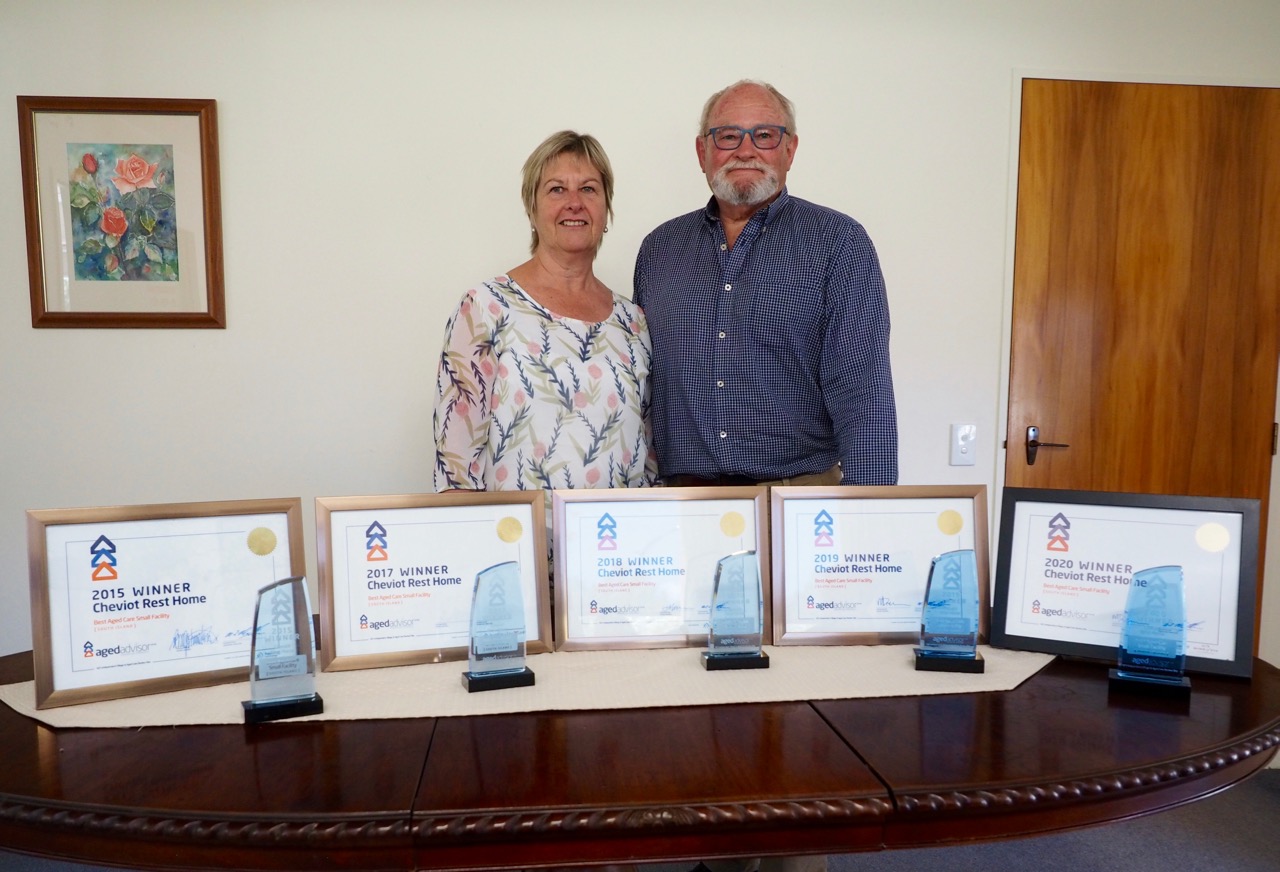
Funding woes have left owners Sue and Steve Coleman, the owner-operators for more than 20 years, with no option but to close the home.
Five permanent residents will need to be rehomed. They will lose their existing home, and move away from friends, family and the community in which they have lived all their lives.
“It is with heavy hearts we will close the doors. I am devastated that this small community is in this position,” Sue says.
“It is going to be a real shock to our community and the wider community of Hurunui because they believe a business like this will always be there when they need it.”
Sue says the home, which has taken out the Best Small Rest Home in the South Island for the past five years, has four empty beds which they have not been able to fill, putting huge financial pressure on the home.She places the blame squarely on the “unsustainable structure” of funding to independent, rural aged-care facilities.
The funding model for aged care is capped by the Ministry of Health, and depends upon where people live. Hurunui aged care facilities receive less funding than some other areas.
All avenues to secure further funding have been explored through meetings with the Canterbury District Health Board (CDHB), the New Zealand Aged Care Association, the Ministry of Health and the Canterbury Clinical Network.
Politicians locally and nationally have been lobbied, but to no avail.
Sue and Steve, who have lived in Cheviot for 37 years, say the closure will have a significant impact on residents and staff, local doctors and district nurses, the Cheviot community, and beyond into the Kaikoura region.
Local doctors use beds at the home to refer patients for respite care, and end-of-life care.
“Our medical staff and district nurses will be beside themselves over the loss,” Sue says.
The home also delivers Meals on Wheels, has people in for day care, with community members often joining residents to take part in exercise classes.“The home is not just for long-term care. It is all the other things and other services we offer to the community.”
Sue believes the health board thinks it can save funding by keeping people in their homes.
“But they (the elderly) become socially isolated, don’t take their medication properly, and don’t eat properly. Then hospital care is needed,” Sue says.
Healthier folk were also taking up the option of retirement villages, which were a big “drawcard”, but sometimes fell short of expectations when residents became ill, Sue says.
Hurunui Mayor Marie Black has lobbied the health board for more equitable funding for the home.
She says all the services the home offers align strategically with better health outcomes, as services are delivered closer to home.
“I am most concerned that the residents of this facility will have no alternative but to move to a large facility which is likely to incur much greater overheads and costs and take them further away from their community of interest and families,” she said in a letter of support to the board.
The board’s funding model was better suited to larger urban facilities, and had little regard to supporting and enabling a smaller rest-home of the calibre of Cheviot to continue to provide quality care in a rural setting, she said.
The home offered an integrated service, working with the general practitioner and the district health nurse to enable appropriate, timely and equitable care closer to home.
“The decision on funding had little or no regard to services that have been provided to achieve the CDHB’s own goals of health delivered closer to home.
“Community health and well-being will be impacted by this decision, which is concerning for the Cheviot community, but also the entire district, particularly when we have an ageing population.”














